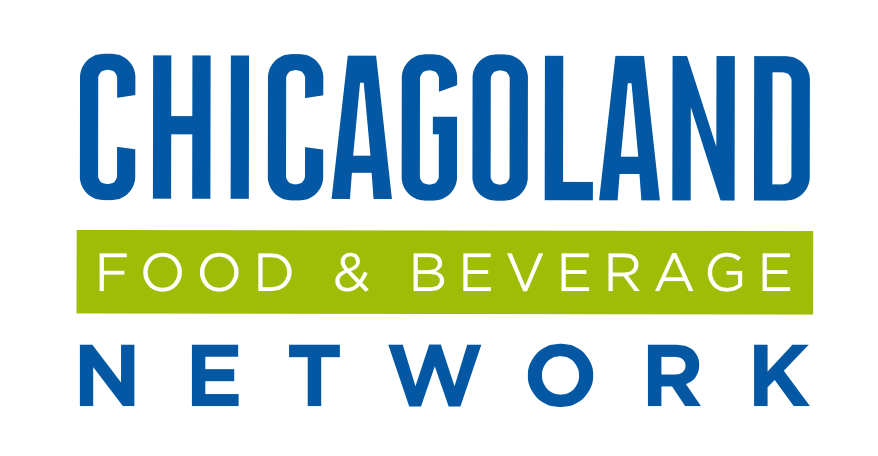Simple Mills CEO Katlin Smith writes in Inc. about Why Chicago Is the Best City to Start a Business in Food
I came to Chicago to attend University of Chicago's Booth School of Business. Before I knew it, I was launching a startup, raising money, hiring employees and establishing an office.
A year in, it dawned on me that I hadn't made the decision to base the business (or my life!) in Chicago. My heart sank. It's a decision that you should be very intentional about as an entrepreneur.
But, then I asked myself - if you could choose anywhere in the country to start this business, where would it be? I realized my answer was still Chicago. Here's why:
Availability of Hires
Multiple major consumer product goods (CPGs) companies are in the region, including Kraft, Mondelez, Conagra, PepsiCo, Tyson, and McDonald's. MARS just announced its move here. This means a huge availability of hires looking to join the next wave of the food movement.
Gaining a bit of big company talent intermixed with startup spirit is a game changer - it helps you scale growth curves much quicker, and anticipate issues before they happen. It also can help attract customers, investors, and partners.
Affordability of Talent
It's not San Francisco or New York - the cost of living is much lower, so you don't have to pay an arm and leg for talent. You also don't have to compete with the large number of companies that often drive up the cost of hiring talent.
It doesn't just mean acquiring better talent at less cost. It can also create the ability to afford more talent - larger teams, better support - for your business.
Abundant Financing Resources
Chicago is a hub for food incubators, accelerators and investment firms. Former McDonald's CEO Don Thompson is launching a food-focused VC firm, Cleveland Avenue, and there's a strong group of other investors focused on food entrepreneurship - S2G, 2x Partners, Gastronome Ventures, RealFoodMBA, and Arbor Investments
These join incubators like The Hatchery and The Good Food Business Accelerator, and The Kitchen, a shared-use commercial kitchen that helps food startups launch with less overhead.
Academic Institutions
The top two business schools - University of Chicago's Booth School of Business (#1) and Northwestern's Kellogg School of Management (#2) - are located in Chicago.
You'll also find the Illinois Institute of Technology (IIT) with a Foodscience program and its Institute of Food Safety and Health (IFSH). IFSH is home to partnerships with more than 50 food companies, 50 FDA personnel and the U.S. Department of Agriculture.
Top academic institutions mean top talent - and interns - for cost-effective growth.
Manufacturing Sites
The city is notorious for its manufacturing resources. They're at a close reach, which means less cross-country trips for entrepreneurs.
We've already worked with six partners within a two-hour driving distance of Chicago. The proximity means you can be on-site to oversee line trials, review packaging, ensure the quality of your product, or operate without time zone or shipping limitations.
Strong Local Food Movement
As a community, Chicago supports its local food. There are over a dozen food-related events every year, including the Good Food Festival and Conference. 2015 and 2016 presenters at the event included Walter Robb, the Co-CEO of Whole Foods; Rahm Emmanuel, the Mayor of Chicago; and Tom Vilsack, Secretary of the U.S. Department of Agriculture, to name a few.
It is this movement that creates progress that starts in Chicago and is replicated across the country. In fact, Chicago was one of the first cities in the country to pass a Soda Tax and one of the first cities to introduce antibiotic-free chicken to its schools.
A Budding Food Entrepreneurship Scene
There's an exciting food startup environment in Chicago. Protein Bar, Vital Proteins, RxBar, Simple Squares, Tiesta Tea, We Deliver, I Heart Keenwah, Mighty Vine, GrubHub, and Simple Mills are just a sampling.
In Chicago there's a culture of helping other startups - you don't see the competitiveness found in other cities. We have food entrepreneurship meetups on a weekly basis, which helps us learn from each other, share our accomplishments, and share our struggles.
A Goid Place to Test Concepts
We've seen San Francisco and New York City give misleading results in product testing. The cities aren't a representative of the U.S. population. Instead, you want to start a CPG company in a place that will hone your concepts for broad appeal.
It's the reason why the production Hamilton debuts in Chicago before other cities - it's an excellent test market for middle-of-the-road concepts so that you can fail fast.
Transportation and Distribution Hub
Chicago has one of the most diverse transportation networks in the world, and it's a hub for distribution. If you're based on the coasts, your product will stop in Chicago before going somewhere else. In fact, the largest specialty food distributor in the country (KeHE) is also based just outside the city.
By basing our product here in Chicago, we reduce shipping costs, increase responsiveness, and decrease working capital needs -- all by decreasing shipping time by 3 days.
And if those aren't enough reasons, there is always the Chicago restaurant scene with some of the top restaurants in the world or the amazing Chicago summers spent sailing the waterfront!
The opinions expressed here by Inc.com columnists are their own, not those of Inc.com.
Published on: Jan 30, 2017
See the full article at: http://www.inc.com/katlin-smith/why-this-city-is-the-best-city-for-food-entrepreneurship.html
